Liquid Cooling vs Air Cooling: Which Is Better for Your PC?

Keeping your PC’s temperature under control is critical for maintaining consistent performance, stability, and longevity. When it comes to CPU cooling, two main approaches dominate the market: liquid cooling and air cooling. Both aim to dissipate the heat generated during operation, but they use different mechanisms and offer different trade-offs.
This article breaks down how each cooling method works, compares their advantages and disadvantages, and helps you decide which one might be better for your setup—especially if you're using a compact system like a mini PC.
How CPU Cooling Works
Every processor generates heat while executing tasks. This thermal energy needs to be transferred away from the CPU to prevent overheating. Both air and liquid coolers operate based on a similar principle: absorb heat from the CPU and move it to a point where it can be released into the air.
The process begins with the Integrated Heat Spreader (IHS), a flat metal lid on the CPU that distributes heat to the attached cooler. A layer of thermal paste improves conductivity between the IHS and the baseplate of the cooler, where heat begins its journey out of the system.
From there, the two cooling systems differ significantly in how they move and release the heat.

Air Cooling: A Simple and Reliable Option
Air coolers use metal components and airflow to dissipate heat. After the heat travels through the thermal paste and into the baseplate, it moves into a series of heat pipes. These pipes then transfer heat to a heatsink made of thin metal fins, which provide a wide surface area. A fan pushes air through the heatsink, moving warm air away from the CPU.
Air cooling is widely used because it's simple, cost-effective, and dependable. It's also relatively easy to install and maintain.
Advantages of Air Cooling
- Cost-effective: Typically lower priced than liquid coolers.
- Low maintenance: No fluid involved, so fewer points of failure.
- Solid performance: Sufficient for most everyday computing and moderate workloads.
Limitations of Air Cooling
- Size: Large heatsinks and fans can take up significant space. In compact setups like mini PCs, this can limit compatibility.
- Noise: Some air coolers can be louder, especially under heavy loads.
- Heat circulation: Warm air is expelled inside the case, which may affect other components.

Liquid Cooling: Efficient and Quieter Operation
Liquid coolers use liquid coolant to move heat away from the CPU. The baseplate connects to a water block filled with coolant, which absorbs the heat. The liquid is then pumped through tubes to a radiator, where fans help dissipate the heat into the surrounding air before the coolant returns to the CPU block.
Most users opt for All-in-One (AIO) liquid coolers, which are pre-assembled and sealed units that combine pump, block, tubes, and radiator into one package.
Benefits of Liquid Cooling
- Efficient heat transfer: Often more effective than air cooling at managing high temperatures.
- Quieter operation: Pumps and radiator fans can run at lower speeds while achieving better thermal performance.
- Better thermal distribution: Heat is removed from the CPU and exhausted outside the case more directly.
Challenges of Liquid Cooling
- Higher cost: AIO units generally come at a premium.
- More complex design: Includes multiple parts, which could potentially fail over time.
- Space requirements: Radiators require mounting room, which can be a challenge in compact systems like mini PCs. Some mini PC cases do not support standard AIO radiators.

Key Considerations for Choosing Between Liquid and Air Cooling
Thermal Performance
If you plan on running demanding tasks like video editing, gaming, or multitasking with heavy apps, you’ll want a cooling system that can handle high thermal loads. Liquid cooling generally offers lower CPU temperatures, making it a strong option for sustained workloads. Air cooling, while slightly less efficient, can still offer great thermal performance for moderate usage.
Noise Level
Air coolers with high-speed fans may become noisy, especially under load. Liquid cooling systems, especially those with larger radiators, tend to produce less noise overall because they don’t rely on a single high-speed fan.
Compatibility with Mini PCs
Size and internal layout matter greatly for mini PCs. Large tower-style air coolers or 240mm+ radiators for liquid cooling may not physically fit in smaller enclosures. In such cases, compact air coolers or low-profile liquid cooling systems with smaller radiators (like 120mm) could be better suited.
Cost and Maintenance
Air cooling is generally more affordable and requires less ongoing care. AIO liquid coolers are easier to manage than custom loops but may eventually require replacement if the pump fails or fluid evaporates. When considering your budget, also factor in potential replacement timelines.
Product Insight: ACEMAGIC Mini PCs and Thermal Design
At ACEMAGIC, our line of mini PCs is engineered to meet the balance of performance and thermal efficiency in a compact form factor. Given the space constraints typical of mini PC cases, our products often utilize well-optimized air cooling systems or low-profile thermal solutions tailored to our internal designs.
For performance-oriented users, the ACEMAGIC TANK 03 features an advanced Freezing Point Cooling System, which combines seven copper heat pipes—five for the GPU and two for the CPU—along with three independent turbo cooling fans for the CPU, GPU, and memory modules. This integrated approach enables efficient heat dissipation, significant noise reduction, and delivers up to a 45% improvement in overall thermal performance, making it ideal for gaming or other demanding workloads.
While our mini PCs are not designed to accommodate large tower air coolers or full-size liquid cooling systems, they are fine-tuned to achieve consistent, cool operation within their dimensions.

ACEMAGIC S3A Mini PC
The ACEMAGIC TANK03 12900H Pro is a powerhouse mini PC featuring the Intel® Core™ i9-12900H processor and NVIDIA GeForce RTX 4060 GPU, delivering exceptional performance for gaming, AI, and professional tasks.
Conclusion
Choosing between liquid cooling and air cooling depends on your performance needs, noise tolerance, space constraints, and budget. For many users—especially those building or purchasing compact systems—air cooling offers a good balance of cost, simplicity, and reliability. Liquid cooling, while more efficient in certain cases, may not always be suitable for small form factors.
If you're running a mini PC from ACEMAGIC or considering one, prioritize cooling solutions that align with the case dimensions and workload. Both cooling methods have strengths, and the best option is the one that fits your hardware and use case effectively.

Frequently Asked Questions (FAQ)
Q: Which cooling method is better for gaming?
Liquid cooling typically provides better temperature control under prolonged gaming loads, but many high-end air coolers also perform well for most gaming scenarios.
Q: Is liquid cooling safe?
Modern AIO liquid coolers are sealed and tested for safety. Leaks are rare when using quality products.
Q: Do mini PCs support liquid cooling?
Most mini PCs do not support full-size liquid coolers. However, some models may accommodate low-profile AIO units with smaller radiators.
Q: How long do air and liquid coolers last?
Air coolers can last many years with minimal maintenance. AIO liquid coolers may need replacement after 3–5 years, depending on quality and usage.
Q: Can I upgrade from air to liquid cooling later?
Yes, if your case supports the necessary radiator size and mounting points. For mini PCs, space may be a limiting factor.




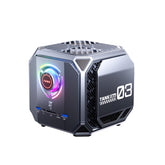

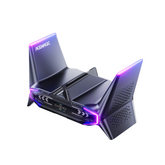

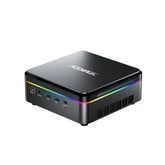





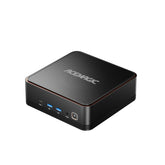

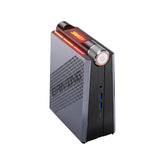

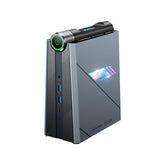

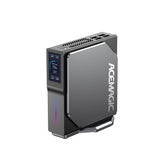



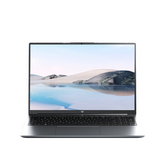

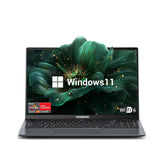

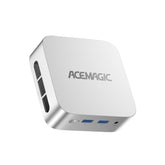




Leave a comment
Please note, comments need to be approved before they are published.